This article is crafted for you, the Head of Corporate Strategy at a Scale-Up SaaS Company, with a focus on how you can master deal sourcing to fuel your company's growth. In a competitive landscape where 70% of businesses fail in the long term, and nearly half of all startups falter by year five, your role is pivotal. It's your strategic vision that will navigate through these challenges and secure the deals that set your SaaS company apart.
Understanding the startup landscape is the foundation of effective deal sourcing. Notably, 90% of startups don't make it, a stark reminder of the importance of strategic planning and execution. These numbers underscore the need for a meticulous approach to deal sourcing, one that aligns with your company's objectives and market position.
Let's delve into the insights that can guide your deal-sourcing strategy.
Understanding the Startup Landscape
A significant majority, 82% of successful business owners, acknowledge the crucial role of having the right qualifications and experience in running a company. This statistic is not just a nod to competence but also a hint at the complexity of sourcing and closing deals that can propel a startup forward. It suggests that those who have a deep understanding of their industry and solid business acumen are more likely to identify and seize the right opportunities.
Furthermore, startups face daunting odds with a 50% failure rate by the end of the fifth year. This rate is even higher within certain sectors, such as EduTech, where the failure rate climbs up to 60%. As a strategy leader, these statistics are not meant to discourage but to inform your approach to deal sourcing, making it imperative to focus on opportunities that offer a sustainable competitive advantage.
The Importance of Qualifications and Experience in Deal Sourcing
The connection between a leader's qualifications and their ability to effectively source deals cannot be overstated. The right qualifications not only provide the necessary skills but also the insight to discern which deals are worth pursuing. Here’s a table outlining key qualifications and experiences that can enhance your deal-sourcing capabilities:
| Qualifications & Experiences | Impact on Deal Sourcing |
|---|---|
| Industry-specific knowledge | Enables identification of strategic deals within the niche. |
| Financial acumen | Facilitates the evaluation of deal viability and potential ROI. |
| Strategic planning | Aids in aligning deals with long-term business goals. |
| Network building | Expands access to potential deal opportunities. |
| Negotiation skills | Essential for closing deals on favorable terms. |
As the head of corporate strategy, leveraging your qualifications and experience is critical in navigating the complexities of deal sourcing.
Identifying Potential Deals: The First Step to Mastering Deal Sourcing
The art of deal sourcing begins with identifying potential opportunities that can drive growth. For a SaaS company, this means looking for deals that can enhance your technology stack, expand your customer base, or provide a strategic edge in the market. Given the high failure rates in the startup world, it's essential to approach this process with a critical eye, evaluating each potential deal for its alignment with your company's strengths and market position.
Understanding the nuances of your industry, such as the EduTech startup failure rates, can provide a clearer picture of where the opportunities and risks lie. This knowledge allows you to prioritize deals that have a higher chance of success in your specific sector.
Evaluating Deals: Criteria for Consideration
Once potential deals are on the radar, the next step is to evaluate their merit thoroughly. This involves a detailed due diligence process, where the following criteria should be considered:
- Strategic fit: How well does the deal align with your company’s strategic goals?
- Financial health: What is the financial status of the entity in question, and what are the projections post-deal?
- Cultural compatibility: Will there be a smooth integration of teams and company values?
- Technological synergy: How will the deal impact your current tech stack or product offerings?
These bullet points represent a starting point for a comprehensive evaluation process that will underpin the success of your deal-sourcing efforts.
Strategic Networking and Relationship Building
In the world of startups, who you know can be just as important as what you know. Building a robust network of industry contacts can provide a wellspring of deal opportunities. Engaging with peers at industry events, participating in online forums, and forming strategic partnerships can all contribute to a richer deal pipeline.
Your role involves not just attending these networking events but actively engaging with and fostering relationships with potential partners, investors, and industry thought leaders. These connections can later prove invaluable when sourcing deals that are a good fit for your company.
Technology and Deal Sourcing
Technology can be a double-edged sword in the realm of deal sourcing. On the one hand, it provides tools and platforms that can streamline the sourcing process. On the other hand, tech-related problems, such as poor cybersecurity and outdated solutions, can lead to a 6% failure rate in startups. It's imperative to leverage technology that not only aids in finding and managing deals but also protects your company from potential tech pitfalls.
By incorporating advanced CRM systems, deal-tracking software, and secure communication platforms, you can enhance your deal-sourcing capabilities while mitigating technology-related risks.
Deal Execution: From Sourcing to Closing
Successful deal sourcing ultimately leads to the crucial phase of deal execution. This involves comprehensive negotiation strategies and a detailed understanding of both parties' objectives. As a strategy head, you must ensure that your team is equipped with the necessary skills to navigate complex negotiations and arrive at mutually beneficial agreements.
A skilled deal team is indispensable during this phase. They must possess a combination of industry knowledge, negotiation expertise, and legal acumen to handle the intricacies of deal-making. Remember, a well-executed deal not only brings immediate value but also sets the stage for long-term collaborations and growth.
To streamline the process from sourcing to closing, consider the following steps:
- Preliminary agreement: Draft a term sheet or memorandum of understanding to outline the deal's key terms.
- Due diligence: Conduct a thorough investigation into the financial, legal, and operational aspects of the deal.
- Final agreement: Negotiate and draft the final contract with detailed terms and conditions.
- Integration planning: Develop a plan for integrating the new assets, technology, or teams into your existing operations.
Cross-functional collaboration is also vital, ensuring that all departments, from finance to product development, are aligned and prepared for the post-deal integration.
Learning from Failure: Analyzing Failed Deals
Despite best efforts, not all deals will lead to success. It's important to recognize that failure can be a potent source of learning. The fact that 21% of new businesses fail within the first year, and nearly half by year five, serves as a stark reminder that the startup journey is fraught with risks.
When a deal falls through or fails to deliver the expected results, conduct a post-mortem analysis to uncover what went wrong. This can provide valuable insights that refine your deal-sourcing strategy moving forward. Consider factors such as market changes, misalignment of objectives, or due diligence oversights. By learning from these experiences, you can better position your company for future deal-making success.
Scaling Up: Long-Term Strategies for Deal Sourcing
As your SaaS company moves beyond the startup phase and scales up, your deal-sourcing strategies need to evolve. Long-term success requires a proactive approach to sustaining deal flow and adapting to the changing market dynamics.
Implement systems and processes that allow for continuous monitoring of the market for potential deals. Stay informed about emerging trends, technological advancements, and shifts in consumer behavior that may present new opportunities or challenges.
Moreover, it's essential to revisit and refine your deal-sourcing criteria regularly. As your company grows, the types of deals that align with your strategic goals may also change. Continual learning and adaptation are key to maintaining a competitive edge in the fast-paced SaaS industry.
Conclusion
Mastering the art of deal sourcing is a complex but rewarding endeavor that can significantly impact the success of your SaaS company. By understanding the startup landscape, leveraging qualifications and experience, evaluating deals critically, and executing them strategically, you can navigate the competitive market and drive sustainable growth.
Remember, deal sourcing is not a one-off task but an ongoing process that demands attention, agility, and a willingness to learn from both successes and failures. With the right approach and mindset, you can turn deal sourcing into a powerful engine for your company's scale-up journey.
By adhering to the insights and guidelines provided, you're well on your way to becoming a master of deal sourcing, setting your company up for long-term success in the ever-evolving world of SaaS.
Appendix
For further reading on deal sourcing and startup growth strategies, consider exploring additional resources such as industry reports, case studies, and thought leadership articles. These can provide deeper insights into best practices and emerging trends in the field.
If you seek expert consultation on deal sourcing, do not hesitate to reach out to seasoned professionals who can offer personalized advice and support tailored to your company's unique needs and objectives.

